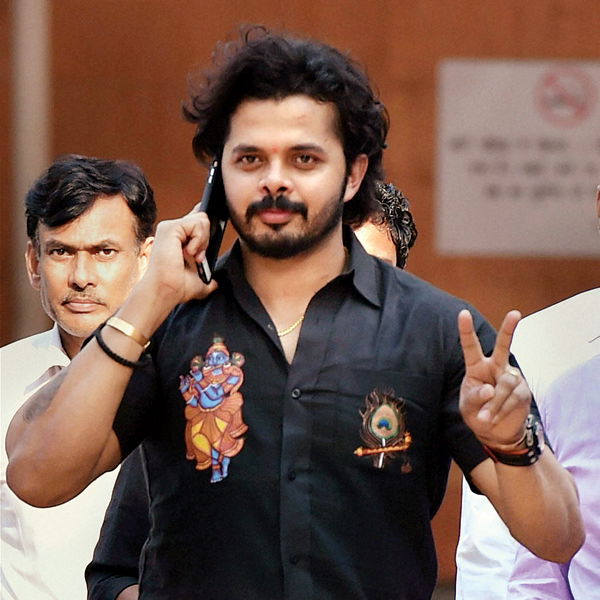

A glimmer of hope shines for the suspended IPL team, Rajasthan Royals after the Delhi court dropped all charges against the trio of S Sreesanth, Ajit Chandila, and Ankeet Chavan over spot-fixing allegations. On 25th July, an additional sessions judge in Delhi gave a clean chit to 42 individuals who were accused of being involved in a systematic racket including the above-mentioned players. As per the verdict, the trio were released of all charges including the ones under the Maharashtra Control of Organised Crime Act, 1999 (MCOCA). Although the BCCI withheld the ban on the three players, surely the chances of the three players returning to their cricketing days are enhanced.

via Imago
The Delhi court dropped the spot-fixing charges against the trio on 25th July.
ADVERTISEMENT
Article continues below this ad
The MCOCA is a special law to fight organised crimes. The Delhi Police had claimed that the Rajasthan Royals trio took money to under-perform in a few matches and were consequently charged for the spot- and match-fixing. The potential connection with underground, Dawood Ibrahim and Chota Shakeel made the situation worse for the players and for IPL as a brand. But, two years after the allegations first surfaced, Judge Neena Bansal Krishna’s verdict has not only lifted the charges against the players, but also found a loophole in the law that prevents any punishment against spot- and match-fixing.
The judgement had three key talking points. First, assuming that the cricketers did involve in spot and match fixing practices, there is still not enough evidence to prove their association with bookies. Second, the Indian Penal Code does not specifically have any punishment for those involving in spot fixing or match fixing. Third, it is impossible to prove that the players took money to under-perform in the matches.
ADVERTISEMENT
Article continues below this ad
In the cases of each of the three players, there was a lack of evidence that forced the judge to drop charges. Sreesanth’s acceptance of the offer over the phone call was not proven. Instead, it seemed as if Sreesanth had declined any involvement in such malpractices. The prosecution claimed that Chavan had taken INR 60 lakhs to perform poorly in a match against Mumbai Indians. But according to Judge Krishna, there was very little evidence to show that Chavan had actually received the money from the bookies.
Chandila’s case was hanging on an individual’s statement, Sunil Bhatia, who reportedly has connections with gangsters involved in the business of fixing cricket matches. The lack of evidence to prove that Chandila took money from the bookie and retraction of the statement by Sunil Bhatia, made Chandila’s case fall apart.
As far as the return of the players to IPL or international cricket is concerned, it seems rather doubtful since BCCI’s decision remains independent of law. The IPL’s Anti-Corruption Code gives the BCCI the right to ban a player on the grounds of mere reasonable doubt. If the board feels that there is a potential probability that a player was involved in an illegality, they may retain or impose a ban on the player.
ADVERTISEMENT
Article continues below this ad
The three players can file a petition against the ban and as per BCCI’s secretary, Anurag Thakur, it is confirmed that if a player makes such a request, the board is willing to to consider the case afresh.
The world, though, can just wonder whether the Delhi Police was totally wrong all along the lines while investigating the case, or is this all another master-stroke to twist the law to one’s own advantage. For now, we have S Sreesanth, Ajit Chandila and Ankeet Chavan as not guilty, clean players.
ADVERTISEMENT
ADVERTISEMENT
ADVERTISEMENT
ADVERTISEMENT

